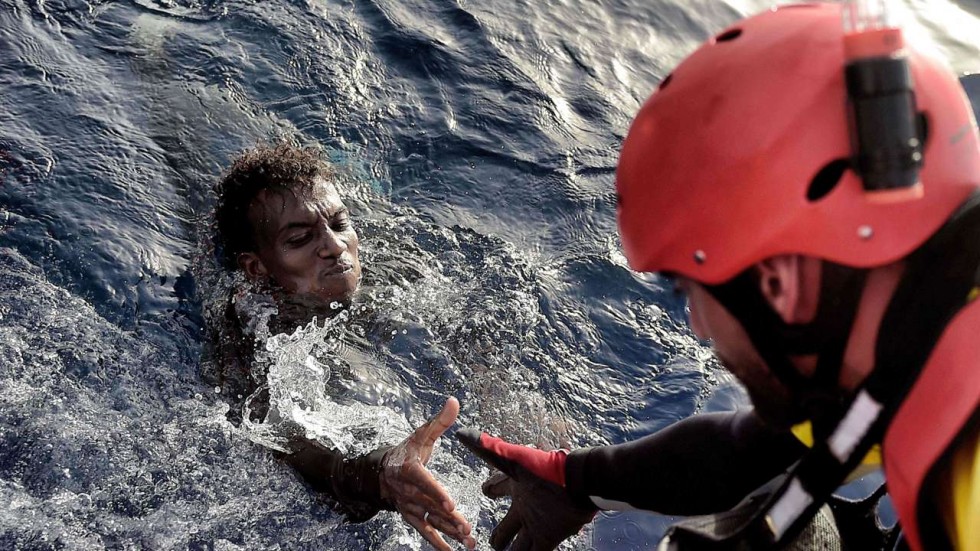Constructive deconstruction. That is the label placed on an intriguing initiative led by HPG/ODI. How could I even question the value of disassembling the humanitarian system? I jumped in. The process is based on design theory, a recently-arrived savior of humanitarian action, in case innovative phone apps and cash don’t live up to their advertizing.
And in that previous sentence lies a clue to design theory’s promise. As a humanitarian no longer in the field, I am drawn to the ills of the sector before those of the people in CAR or Syria. I am hardly alone in that regard. To fix that proximity bias: design theory. Because one doesn’t design a new sofa with the furniture sector in mind. The trick in design theory is to immerse oneself in the user experience; to empathize with them. The other trick is to prototype, to churn out new ideas, see how they fare, adapt them, see how they fare…
In one exercise, we were asked to ideate. That involves said churning of ideas without the brakes of affordability, feasibility or desirability. I churned. My small group astutely relegated these ideations to the ‘kill’ pile. The beauty of having my own blog site is being able to re-animate them here, for you, even at the risk of generating the ideation equivalent of false news. (This blog not to be confused with a few of my legitimate ideas). In no particular order:
- Ban innovation. That seemed like a contrarian place to start. Remember the kid who couldn’t dribble a basketball, couldn’t shoot it, couldn’t play defense, but spent a spectacular amount of time perfecting his alley-oop slam dunk? That’s the humanitarian system’s relationship to innovation. As donors dump money into innovation and we all drink the Silicon Valley Kool-Aid of gadgeting our way out of crisis – as the system devotes ever more resources and effort to innovation – it seems further away from getting the basics right. Here’s an innovation – deliver emergency aid to people in crisis. Here’s another innovation – engage in protection work as part of your efforts. And another — ensure that the needs of people determine what you do. Get those right and maybe we can start celebrating the latest phone apps.
- Translate it. Mandatory – in the form of contractual obligations to donors, technical agreements (or regulations) with host governments — translation into local language(s) and community-level dissemination of key documents, including project proposals, budgeting and progress reports.
- Invoice it. More than once at last month’s DRR conference (see previous post) did we hear that governments refused to invest in disaster risk reduction because that was ‘for the internationals’. Yes, that old issue – aid undermining responsibility and building dependency. But it is not just that we perform/replace the work of governments, armed groups and communities. It gets much worse. Take South Sudan, where an MSF hospital might get burned down and looted a few times over the course of a decade. Or where the government has managed to transform international goodwill, billions of dollars and the joy and hope of millions of South Sudanese into violent catastrophe. That much destruction and squander takes dedication and it takes talent. It takes intent. So why does MSF rebuild its hospitals? Why do humanitarians continue to provide healthcare when the government didn’t even try, but instead looted the goods? Why do we feed people who were driven into man-made famine? Well, because that’s often what humanitarians do. That’s our job. But why don’t we do something more? I mean, something other than shaking our finger and holding press conferences to declare that we are deeply peeved? How many hundreds of millions has the international community spent in South Sudan due to the gross negligence and wilful misconduct and criminal behaviour of those in power? I say, send them the invoice. Hire some clever lawyers. Get a judgment. Garnish their wages. Freeze a few bank accounts. Invoice it even if you never get a cent back. Invoice it out of principle.
- Context testing. Everyone working in the aid sector in a foreign country (for longer than six months) must pass a test to show that they have grasped the basic history, geography, culture, economics etc. of that country. They must take an induction course run by a local business or university. They must prove that they are capable not just of being neutral (read: completely disconnected), but of being contextual.
[To be continued in a few days]
